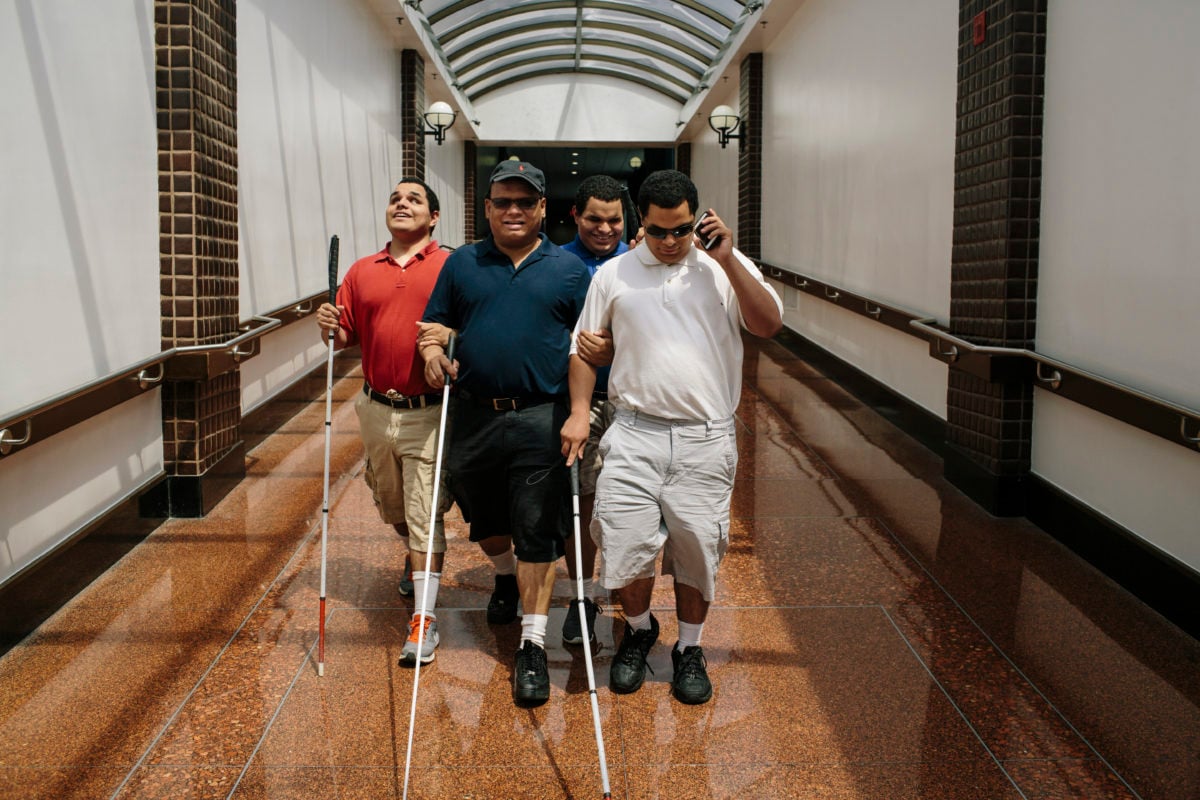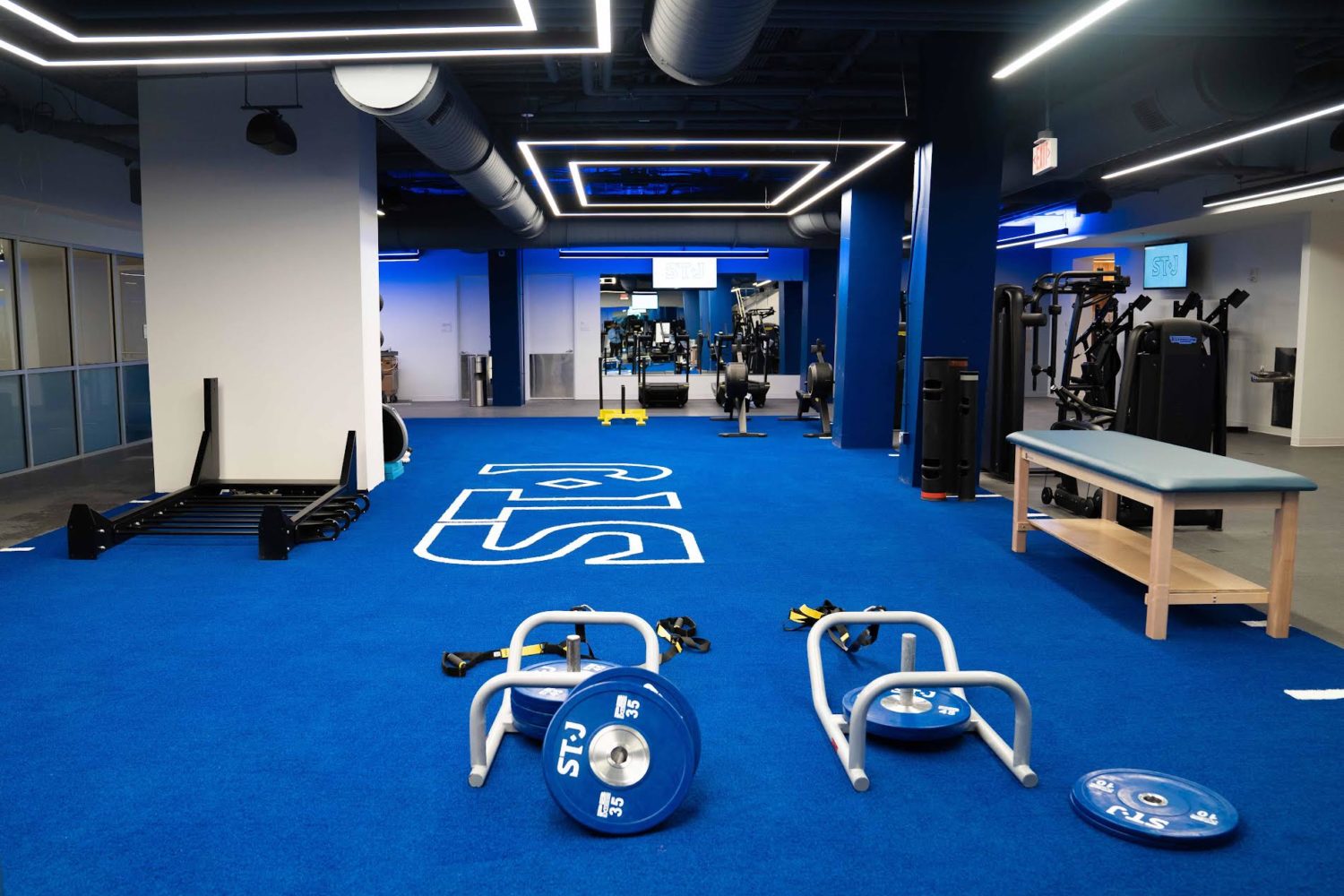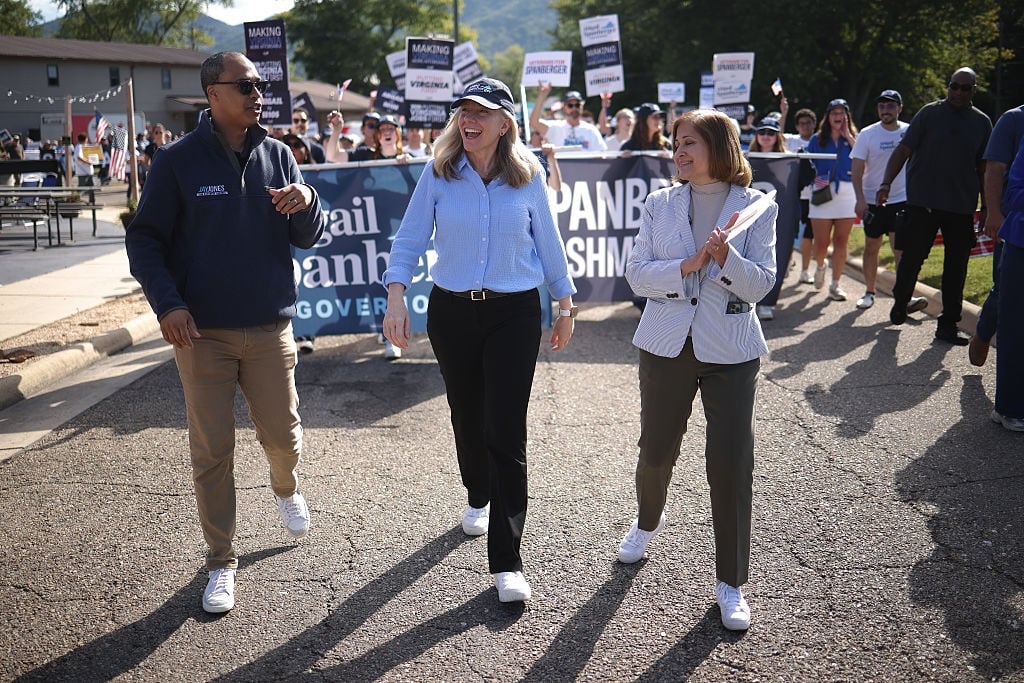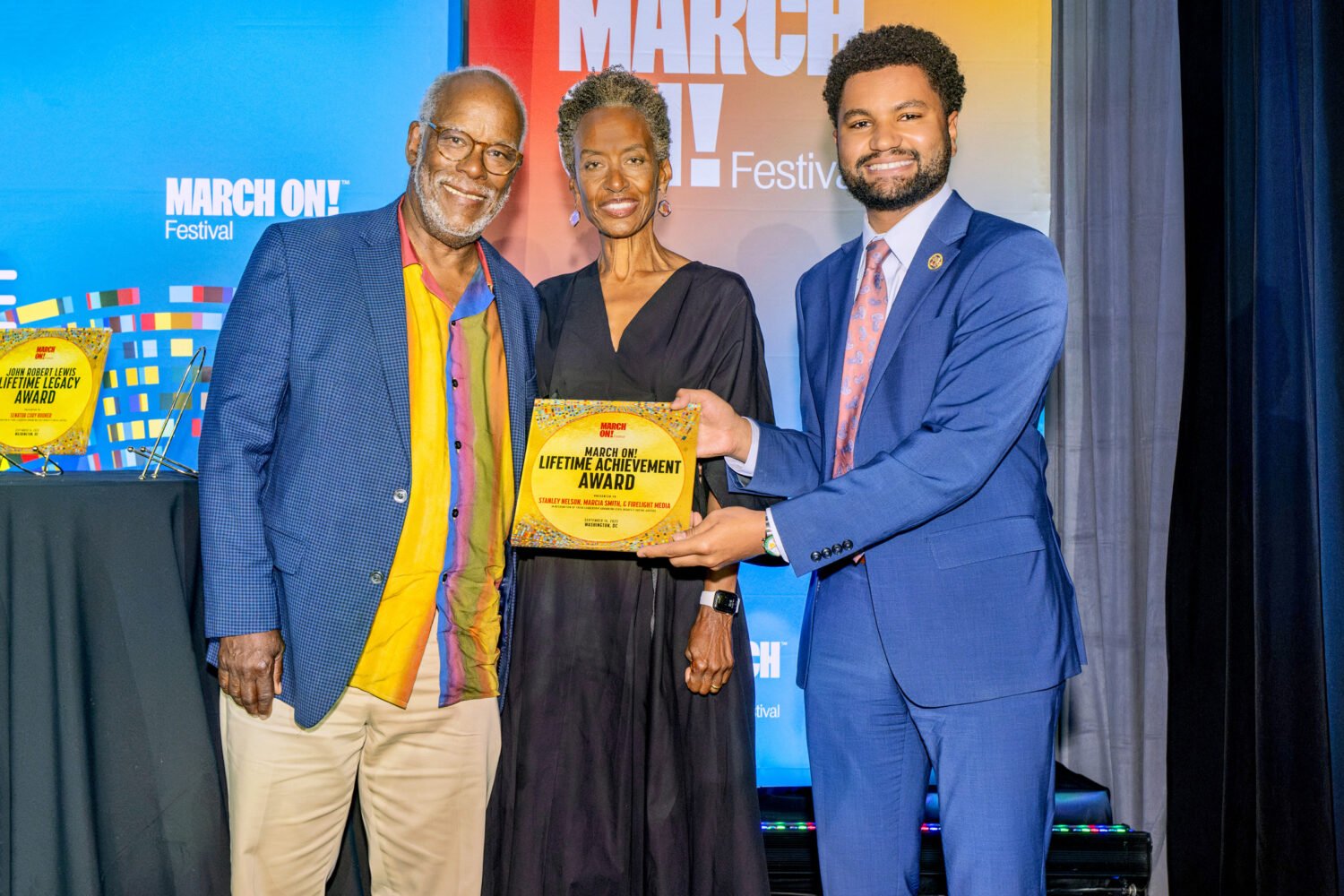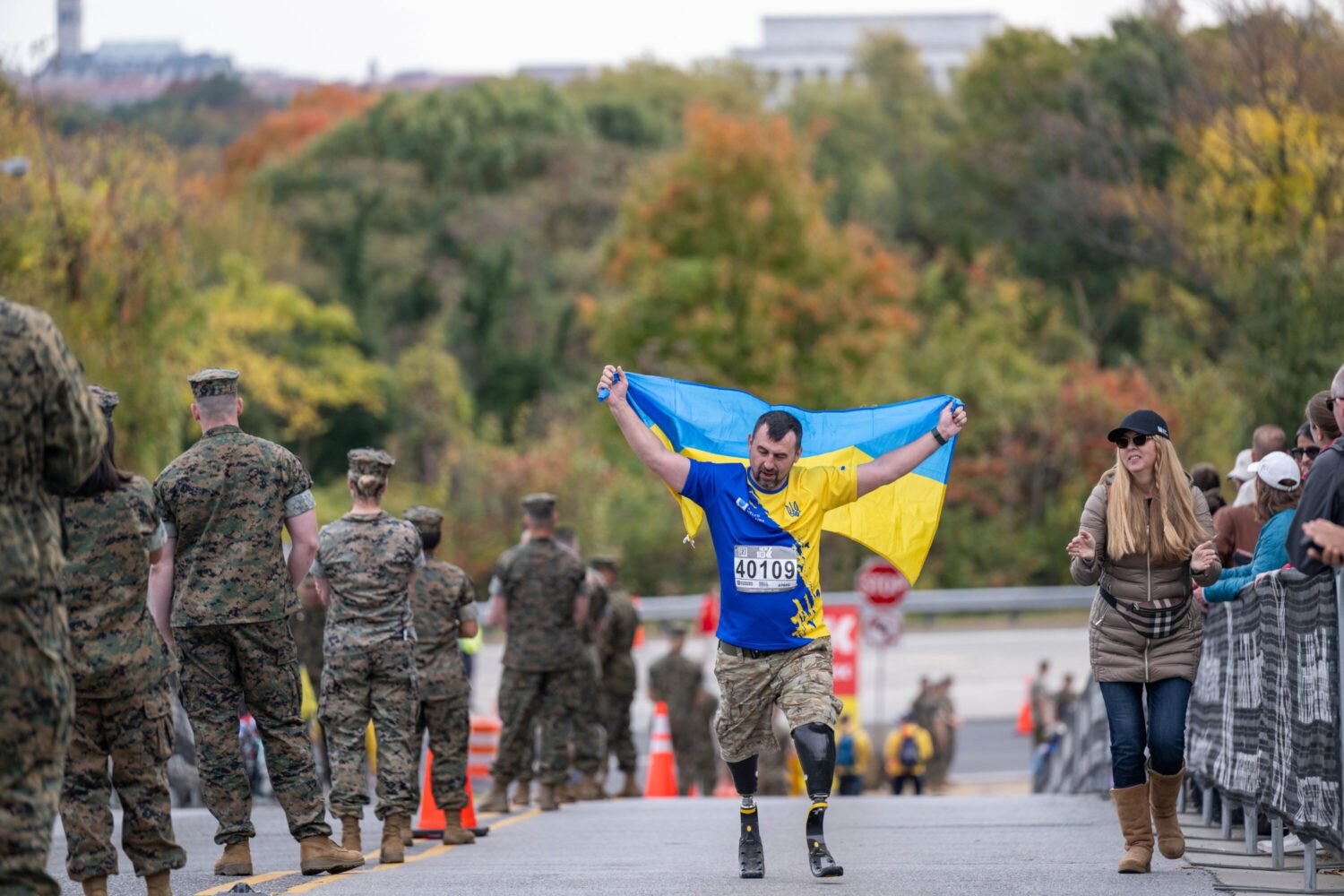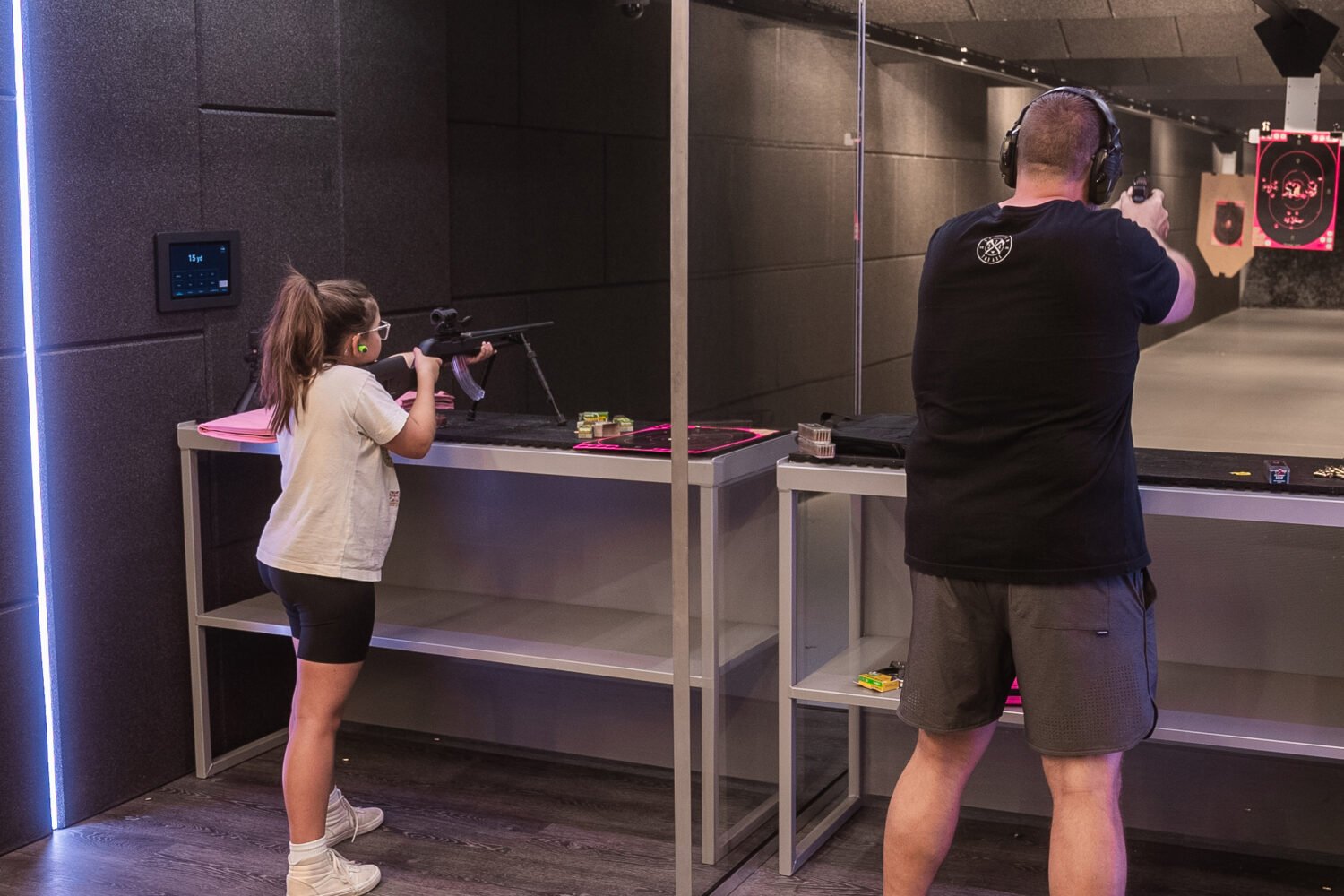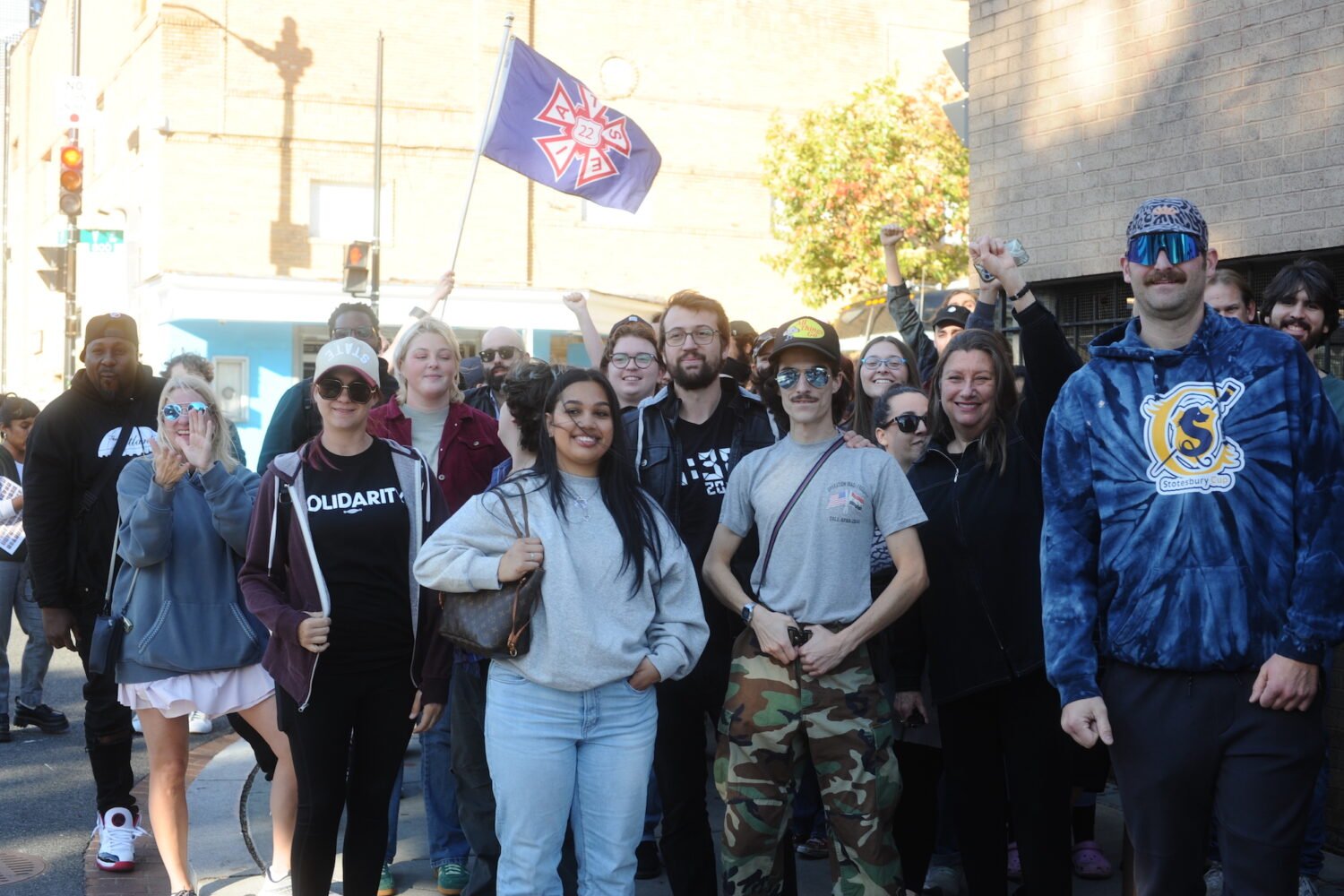On May 22, 2010, Leo, Nick, and Steven had pancakes for breakfast. The date is as easy for the triplets to remember as their birthday. Because on that particular Saturday, a visitor was coming, a man named Ollie Cantos.
Ollie had something in common with the brothers. He was also blind.
A government attorney, Ollie had learned of the family through a friend from church. The boys—born in Colombia three months premature and weighing about a pound each—were ten at the time and being raised in South Arlington by their mother and grandmother. Their father, who had come to the States to work for the Colombian Embassy, had moved back home when the boys were four. They hadn’t seen him since.
Ollie’s friend believed that the brothers—who were being bullied by other kids and getting into fights—should meet him. Ollie had mentored children for years, and the triplets’ mother welcomed the visit.
“I had heard that Leo was Mr. Happy-Go-Lucky but yearned for friends,” Ollie recalls. “Steven was very serious and, again, didn’t have a lot of friends. Nick was the one, I heard, who was the most angry.”
Ollie, then 39, was confident he could make a connection, because his own childhood hadn’t always been easy. He had tried to hide his blindness for years, forgoing a cane and the use of Braille until he was an adult. “I was in denial,” he says. “I thought blindness was a bad thing. I thought it meant you were helpless and couldn’t do anything.”
When Ollie arrived, the boys were playing a made-up game show on their Casio keyboard. They immediately made him a contestant.
“The next question goes to Mr. Ollie,” Leo said. “Mr. Ollie, do you like candy?”
The brothers fired off more questions. They wanted to know: What had Ollie’s childhood been like?
Ollie told of the troublemakers who’d tripped him in the school halls or waved hands in front of his face and teased: “How many fingers am I holding up?”
As intrigued as the boys were, says Leo, “the first feeling I had was that it was probably going to be one of those one-day relationships and then he’d be gone.
“And then,” Leo goes on, “he introduced us to this thing called a shoulder ride.”
One by one, Ollie hoisted each boy onto his shoulders, then spun in circles and flipped them down and around. It was terrifying and intense and amazing, but most of all confusing: How was a blind man doing this?
• • •
The triplets’ lives had been extremely sheltered: school during the week, church on Sunday. Teachers and Columbia Lighthouse for the Blind volunteers took turns helping them have experiences common to others their age, such as ice-skating and trick-or-treating, and they went to a weeklong CLB day camp five summers in a row. But by and large, Leo, Nick, and Steven didn’t stray much from their routine. Their mother, Ceila Gracia, says she was working two jobs and had little time. She was also cautious: “My mother and I, we wouldn’t let them do some things like go outside alone. Always in order to protect them.”
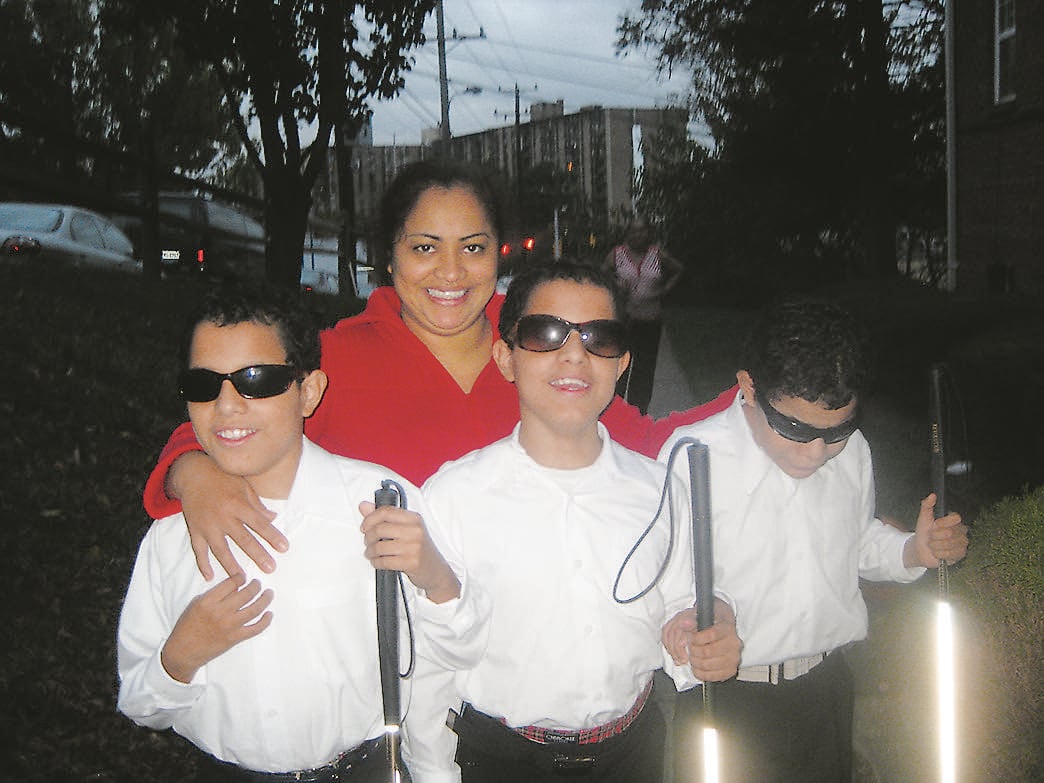
The tedium wore on the boys. They say they could hear other children laughing outside the apartment windows—including their older, sighted brother—but weren’t allowed to join in when kids were playing in the snow or kicking a soccer ball. Even inside, they didn’t do much for themselves; their mother and grandmother took care of everything, including picking out their clothes.
Steven fantasized about having a different life—he even thought about running away, although he didn’t fully understand what that meant. Nick says he wanted to die and go to heaven.
Ollie’s boyhood had been different. The eldest child of Filipino immigrants, Olegario Cantos VII had been raised in Los Angeles by parents who saw no reason to give their blind son special treatment.
“When I was a kid and there were chores around the house, I’d say, ‘Well, I can’t see the dirt.’ And my mother would say, ‘Well, use your hands to find it.’ My mom insisted: ‘You’re to wash the dishes. You’re to clean the floor. You’re to make your bed, and you’re to do it properly, and here’s how you do it.’ ”
Ollie believed the bullies who called him worthless. But he also adored his mother. If she saw no limits to what he could do, who was he to doubt? One day when he was 12 and playing at a cousin’s, he thought: Hey, if these kids my age can ride bikes, I can, too. “That really did not turn out very well,” he laughs.
Only about 40 percent of working-age adults with significant vision loss are employed. The unemployed majority was no place for Mrs. Cantos’s son. Ollie went to law school at Loyola Marymount University, then moved to Washington at age 31 to become general counsel for the American Association of People With Disabilities. He later worked at the White House under President George W. Bush and at the Department of Justice. Today he works at the Department of Education.
At the time he met the triplets, his life was busy. He worked long hours, sat on nonprofit boards, and volunteered for political causes. His day often ended at midnight. Suddenly, that schedule changed. He had devoted years to his goal of shaping a better world for those with disabilities, and here were three kids he could help.
“At first it was just fun to spend time with them,” Ollie says, “but it became clear very quickly that there was more to this—so much more than I could ever have imagined.”
To free up time, he quit all his boards and volunteer efforts. He started visiting the boys every Saturday, then every Sunday, too. Eventually, he was also seeing them during the week to take them to doctors’ appointments and help with their studies.
Teachers and volunteers who had worked with and cared about Leo, Nick, and Steven for years grew curious. Who was this man? As the boys spent more time with Ollie and less with them, some of the adults did a bit of sleuthing. Satisfied that the boys were safe, they also saw how happy the triplets were to have a father figure around.
Ollie became like a coach, teaching the brothers all kinds of life skills. How to cut steak with a knife, how to make their beds, how to cross busy Columbia Pike.
“I taught them how to network within two months,” he says. “I’d take them to an event and I’d say, ‘Okay, guys, the one rule: Do not leave this room. Other than that, I’m sending you in three different directions. Go meet people. Go talk to people. See you later.’ ”
“The first time I did that,” Leo says, “it was nerve-racking.” But it paid off that fall: “We went into sixth grade, and we were very popular.”
When Ollie took the brothers out to eat for the first time, he realized they had no idea how to order—or even figure out what they wanted. Shortly afterward, he came up with a new challenge. He decided to take each one to the convenience store near their apartment. Leo was first, and once they arrived, Ollie asked what he’d like.
“He wasn’t used to making those decisions,” Ollie says, “so he said, ‘What do you think I should get?’ ”
For a few minutes, it was like a Laurel and Hardy skit, with Ollie repeatedly saying, “Well, what do you want?” and Leo replying, “What do you think I should want?”
Finally, Leo settled on a Coke. Ollie said, “Okay, go ahead and ask.”
Leo: “Me? I have to talk to them?”
Although the boys lived within a block of the mom-and-pop, the shopkeeper had never seen them before. She figured they’d just moved in. “Nope,” Ollie recalls telling her, “they’ve been here seven years.”
The woman then asked Leo, “Is that your dad?”
Before Ollie could respond, Leo wrapped his arm around him and said, “Yes, that’s my dad.”
Ollie crouched down to the little boy’s level and rested both hands on Leo’s shoulders. “Do you know what that means?” he asked.
Leo said, “Well, you take us places. You protect us. You help us with our homework. That sounds like a dad to me.”
They had known each other only two months.
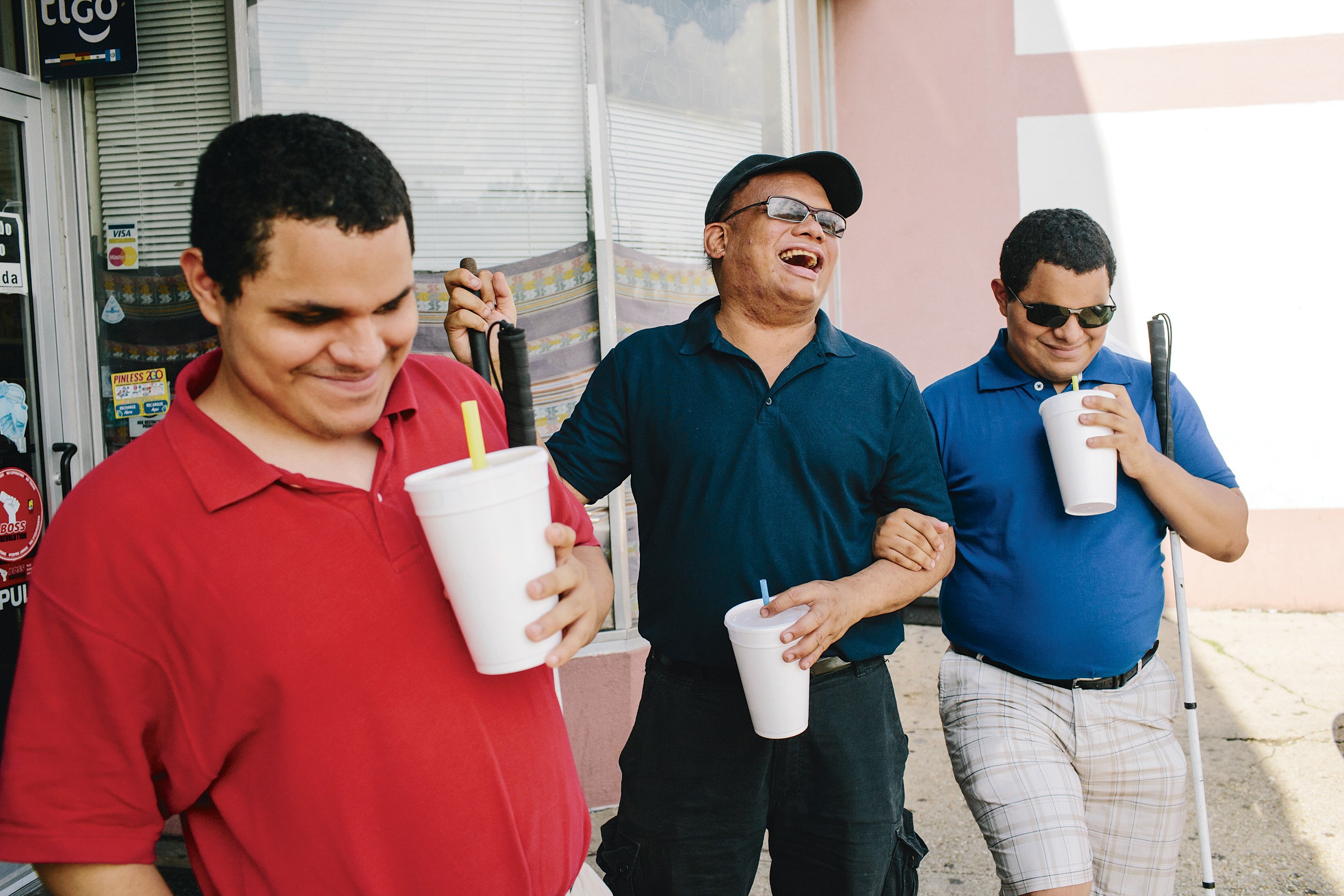
• • •
“Let me tell you about the first time we went to Crystal City. That was way awesome,” Leo says. “Crystal City is a full 12 blocks of underground. We walked all 12 blocks, and we found this place called Chipotle and it was really nice. Then we went to [Ollie’s condo], and we touched everything that was there.”
The triplets opened every door and drawer at Ollie’s, grasping objects and asking, “What’s this?” One boy broke a $200 seal that Ollie—at the time a volunteer lawyer for the Coast Guard Auxiliary—used for official documents. Another locked the door to his clothes closet, to which he didn’t have a key. The third boy unscrewed the peanut-butter jar and dug in.
This is the point where a lot of people might wonder what they’d gotten themselves into—Ollie included. I don’t know if I’m equipped to handle this, he thought. His parents wondered the same. Yet once Ollie had made the decision to go all in, he would not abandon these boys.
He was determined to let them feel their way through the world. With a sighted friend, he brought them to a water park and let them splash around. He gave them a soccer ball with a bell inside so they could kick it around. Nick had dreamed of being in a boxing ring, so “Dad” arranged a lesson with a former welterweight champ.
It’s easy to get lost when you’re blind—although Google Maps talking to you from a smartphone is a lifesaver—so as the boys grew, Ollie explained how he used the sun, as well as traffic sounds, to figure out direction. Sometimes when he’s with them, he lets them get lost on purpose so they have to find their way back. He made them memorize part of the Metro map.
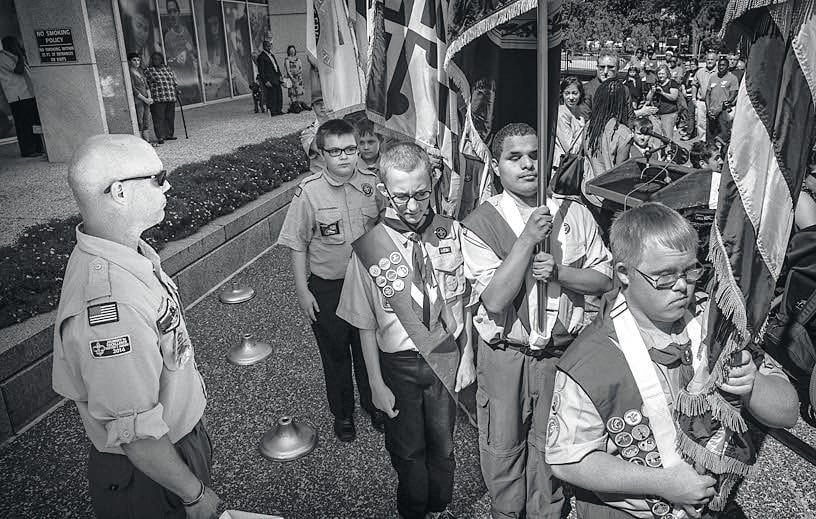
They also joined the Boy Scouts. Troop leaders didn’t say no when the boys wanted to cut wood with an ax, build a fire, or shoot an arrow like the other kids—instead, they found a work-around. At scout camp in the summer of 2014, they each built a shelter and slept in the woods for their wilderness survival badges.
They got to shoot guns, too, each boy squeezing the trigger while someone else held the Glock. Said Nathan Graham, then leader of the church that sponsors the troop, who has since passed away: “You should have seen the looks on the faces of the employees of the shooting range when we brought Nick, Leo, Ollie, and Steven out.”
• • •
Ollie had always assumed he’d be married by that point in his life, with his own children. Although he’d had some serious relationships, it hadn’t worked out that way. But here were three boys bonding with him. “It’s the strangest thing,” he says, “but I felt like they’d always been my kids.”
He also felt conflicted. Ceila, he thought, needed to know that her sons were calling him Dad. “What do you want me to do?” he remembers asking her. “I don’t want to be inappropriate.” At the time, she says, she thought it odd, but Ollie recalls she also said, “They need somebody. They need you.”
Yet tension developed. Ceila admits it was hard at first to see her children getting close to Ollie. He and the boys, for their part, would often get frustrated at her understanding of what the youngsters were capable of, when she wouldn’t allow them to do certain things.
There was also religion. Ollie is Mormon. Ceila is not. A year and half after they met, the boys asked to go to Ollie’s church. They say that when they went to the Salvation Army church with their mother, other kids excluded them when they played and also bullied them—yelling at them, for example, to “move out of the way” as the other kids ran around together. According to Ollie, Ceila put her foot down. Over her dead body, she said, would they miss church with her.
Eventually, they compromised: If the boys went with her to services on Sunday morning, they could go to Ollie’s church in the afternoon. Six months into the arrangement, Ollie says, Ceila let them skip the Salvation Army services. At the Mormon church, Ollie and the boys became a fixture in the front pew—Ollie usually in the middle, with his arms around two of the boys and his hand on the shoulder of the third. The boys were baptized into the Mormon faith under the name Cantos.
But in occasional disagreements with their mother, Ollie realized he had no paternal rights. Why not, he resolved, make it official?
When he broached the idea of sharing legal custody of the boys with Ceila, she refused. “No Hispanic mother gives her kids to another person,” Ceila explains.
By this time, Ollie was acting more and more like their father. They occasionally stayed with him on weekends—gradually it became every weekend. And there was little doubt the triplets were prospering. Before Ollie, they’d struggled more in school, despite having good teachers. (Mary Filicetti, their special-ed teacher at Barcroft Elementary, had learned Braille to work with them.) He met them almost daily to oversee homework and teamed up with their teachers to push them to excel—without special treatment. (Arlington County provides the boys laptops with screen-reading technology as well as talking calculators, and some assignments are translated into Braille.) When they started at Thomas Jefferson Middle School, Ollie required the boys to e-mail him weekly grade reports. Any grade below B means going the weekend without their audio-assisted video games.
“The odds are against us,” Ollie says. “To counter those odds, my sons can’t be just okay. They have to be really good. Would I rather they not have to? Absolutely. It’s a lot of work. But I also don’t play the victim card. It’s not the world’s fault we’re blind. It’s not the world’s responsibility to give us a job.”
Once when their grades were too low, Ollie forbade them to go on a field trip to a corn maze. The boys sneaked behind his back—neglecting to tell the teacher that Ollie had rescinded the already signed permission slip—and went anyway. When he found out, Ollie grounded them. He was livid, and Nick spit out: “What are you going to do—leave?”
“It’s not like we’re not used to it,” Ollie remembers Steven saying. “I said, ‘Steven, just because something happens, that doesn’t mean I’m going to go off and leave. You might get in trouble, but I am not leaving you.’ ”
In fact, even after Ceila rebuffed Ollie’s offer to share custody, he persisted in lobbying for the arrangement. Often it was the triplets’ grandmother, Margenia Pacheco, who acted as the buffer between her daughter and Ollie. One day several summers ago when Ollie telephoned the boys and Margenia answered, she summoned them by saying, “Su papá está en el teléfono”—“Your dad’s on the phone.”
The boys were thrilled to hear their grandmother call Ollie their “dad.” They’d never met anyone like him—someone who truly understood their situation and wanted to help. “He has a large heart,” Leo says. Ollie seemed somewhat glamorous at first, this new friend who could do so many cool things, says Steven. They soon realized he was genuine. He never broke a promise he made to the boys—which is what helped win over Nick, the slowest to trust that this would last.
Eventually, Ceila says, she also began to trust Ollie, especially when she saw how her sons were thriving. “It took time. First he won my mother over, then he won me over. I think that God sometimes sends someone to help us here,” she says. “Like an angel.”
Last November, after about two years of back-and-forth and paperwork, Ollie, Ceila, Leo, Nick, and Steven stood before an Arlington County judge, who granted Ollie joint legal custody. “When the judge signed the order, I was crying,” Ollie says. So were the boys, then 16.
Although, Ollie adds, “they said it was just something in their eyes.”
• • •
When Ollie, Leo, Nick, and Steven are out, it’s hard not to notice them. On several occasions at restaurants, a diner at a nearby table has paid their check. A few times when they’ve been out walking, strangers have offered to pray for them. “They’d say, ‘What should we pray for, your blindness?’ ” says Ollie. “And I’d say, ‘Forget the blindness. Pray that we win the lottery.’ ”
By now, the brothers are used to sharing a public persona. “Here’s what I think,” Leo told me when I first met him. “I think that people like us for the reason that we’re blind. That’s basically all they come up to talk to us about. It’s frustrating at times because you try to have a regular conversation about something other than your blindness.”
At school, they’ve been allowed to cultivate their individual identities by being assigned to separate classes. “We’re kind of happy about that,” Steven once explained, “because we hate being called the triplets.”
Leo is considered the warmest and most extroverted. He has played the French horn in the school symphony (because, he says, it sounds “cool”), but he hates the stereotype “that most blind people go into music—like Stevie Wonder.” What he really loves is computers. He wants to practice technology law.
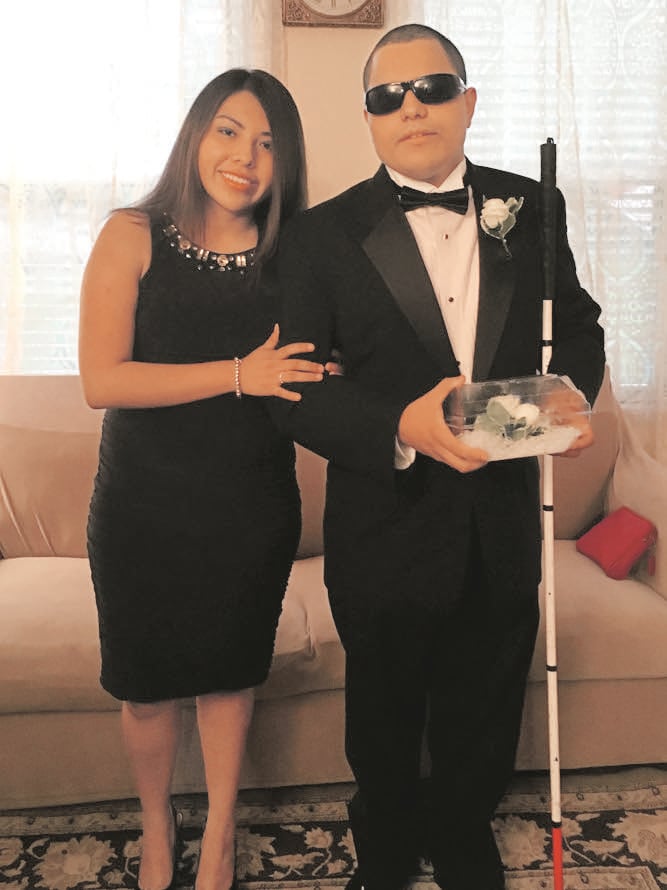
Nick is the most athletic—he used to be on the crew team—and is the one always offering to help others. He hopes to become a prosecutor. Family friend Rodney Neely calls him the jokester of the family, “the one who will most likely be a salesman or politician.”
Then there’s Steven, who comes off as stiff and gruff—the “Mr. Spock” of the group, Ollie says—but who mentors younger kids and is “a big, soft teddy bear,” says Alissa Salamone, Wakefield High School’s teacher of the visually impaired. The most ambitious of the three, he also wants to become a lawyer like his dad, but specialize in intellectual property.
Steven plays the baritone and the euphonium, and this fall he’ll be one of two drum majors leading Wakefield’s marching band—as far as Ollie can tell, the country’s first blind drum major at an integrated public school.
Ollie and his three sons credit some of their achievement to reading popular personal-development books—The Magic of Thinking Big, The Secret, Psycho-Cybernetics. Every night, they drift off to sleep with headphones on, listening to recordings about success, wealth, and other affirmations.
The idea of thinking big has sunk in as they set their sights on college. “No one’s going to expect us to go to Harvard,” Steven says. “They’re going to expect us to go to some community college.”
• • •
One day this past spring, Ollie was napping when he started dreaming about food. He woke up hungry—and to the unmistakable aroma of cheese, which he loves.
When Leo came into the room, Ollie asked if the boys had ordered in. “He said, ‘Oh, no, I made dinner.’ Then he came over with a plate, and he sat me up and gave me a sandwich he had made. It was a grilled cheese.”
Thanks to Ollie and their orientation-and-mobility instructor, Nina O’Neill, the brothers had been learning to cook for some time—guy food like scrambled eggs, French toast, and hamburger casserole. But before that day, none had made anything on his own. His sons, Ollie knew at that moment, were going to be just fine.
As would Dad, when it came time for him to send them out into the world and let go. “It’s funny—people say, ‘You’re so good with them,’ but I’m the one who feels like I get the better end of the deal,” Ollie says. “They give me such a sense of peace that I’ve never gotten any other way.”
Sometimes, he feels so happy that he starts singing in the grocery store. He’s less serious, more playful. “One time—this is really bad, I shouldn’t have done this,” Ollie says, “but one time I was in this really goofy mood. We knew someone was staring at us. We went up to the person . . . and I said, ‘Be careful, it’s in the water.’ And we walked away.”
Family friends are quick to underscore the sacrifices Ollie has made, the resources and time he has poured into making life better for the triplets. He still hopes to get married and have more kids someday but knows it will take a special woman to share life with him and the boys.
“It’s really funny—they want me to get married, and they want to have other brothers and sisters,” Ollie says. “They’ll say, ‘Dad, any luck?’ And I’ll say, ‘I’m working on it, sons, I’m working on it.’ ”
In the meantime, he’s forcing his sons to handle their own interactions at school and in the Scouts, and to make more of their own decisions—all to prepare them for the days when they could be practicing law, managing their own families, and who knows, maybe showing their children how a blind man can give a shoulder ride.
“The thing I’m waiting for that hasn’t happened—and I’m glad hasn’t happened—is I expected teenagers to not want me around, to not want their friends to see me around,” Ollie says. “But every time I’m with them in a school setting, they are always excited to introduce me to their friends. They’ve said to me, ‘We know what it’s like to not have a dad. We’re never, ever giving this up.’ ”
This article appears in our September 2016 issue of Washingtonian.

